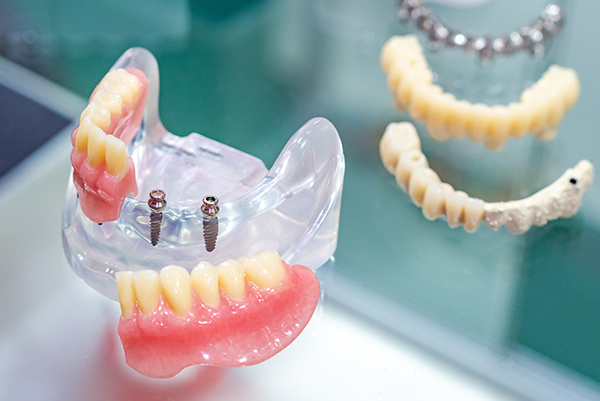What is a Mini Implant?
Mini Dental Implants are the newest breed in implant dentistry.Mini Implants are self-tapping threaded titanium screws indicated for provisional and long-term applications. These devices allow for the immediate loading and long-term stabilization of dentures in the presence of primary stability and appropriate occlusal loading.
"Mini" or small-diameter implants (SDIs) are traditionally prescribed for patients who do not receive root-form implants due to medical, anatomical or financial reasons. The benefits include a minimally invasive surgical protocol, immediate loading and affordability. They can accommodate new or existing dentures, which are anchored to the heads of the mini implants via a simple and effective O-ring retention system, providing edentulous patients new levels of comfort and confidence.
What are the advantages of Mini Implants?
Let's review the advantages of Mini Implants:
- No need for complex flap surgery: Mini-implants have all the advantages of implants in general, but, as their name implies, they are smaller and can be placed without complex flap surgery.
- Procedure is less invasive and healing takes short time: Mini implants do not require surgery like dentures so the prosthetic tooth can be loaded within hours and the healing process is much faster. Healing time is reduced from months to days.
- Saves cost for bone graft: There’s usually no need for additional costly bone grafts.
- Convenient and Comfortable: Generally procedures gets completed in one visit and patient can eat same day.Also, unlike dentures, mini implants do not slip or feel awkward. They can be used, however, to realign and improve dentures.
What are differences between traditional implants and mini implants?
They are following:
- Mini implants are approximately half the width of their traditional counterparts.
- The implant is not fully submerged during a narrow implant procedure.
- Should implant failure occur, the small size (that of a toothpick) means grafting is not necessary.
- Mini implants are less costly.
- Mini implants are solid though they do not contain a screw.
How are mini dental implants placed?
The whole mini dental implant placement procedure takes approximately one hour. Generally, in the case of lower jaw implants, four MDIs will be placed about 5mm apart. Prior to inserting MDIs, the dentist will use many diagnostic and planning tools to find the optimal place to implant them.
Here is a brief overview of the MDI placement procedure:
- A mild anesthetic is administered.
- A small hole is drilled in the jawbone to situate each MDI.
- Each implant is screwed into place and tightened with a winged wrench.
- Finally, a ratchet wrench is used to fully stabilize the MDIs.
- The denture is measured against the mini implants and marks are made to indicate where the MDIs will fit.
- The denture is sent to the laboratory to have holes drilled to accommodate the MDIs.
Once the denture has been fully modified, it can be affixed to the MDIs. The rubber O-ring on each MDI snaps into the designated spot on the denture, and the denture then rests snugly on the gum tissue. MDIs hold the denture comfortably in a tight-fitting way for a lifetime.
In almost all cases, no stitching is required and no real discomfort is felt after the procedure. After the denture placement procedure is complete, light eating can be resumed. The denture can be removed and cleaned at will. MDIs enhance the natural beauty of the smile and restore full functionality to the teeth.

